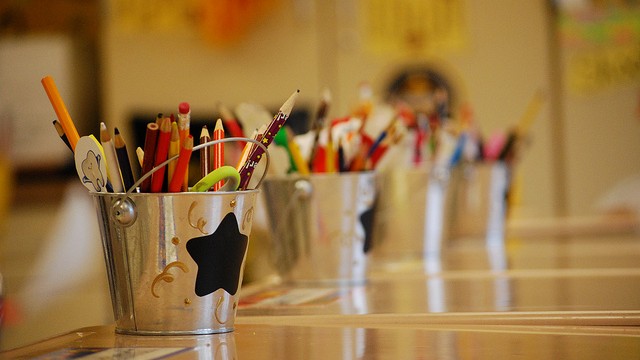Over the next few weeks, parents and teachers will sit across from each other in tiny chairs and discuss a child’s progress in a parent-teacher conference. And though parents and teachers alike may experience the anxiety of expectations, conferences represent one of the most enduring and important home-school communication mechanisms used to discuss a child’s growth and progress, according to senior research analyst Heidi Matiyow Rosenberg of the Harvard Family Research Project.
That’s why the Harvard Family Research Project created the Parent-Teacher Conference Tip Sheets for administrators, teachers and families alike, in order to help encourage what Rosenberg called “the shared responsibility” of student learning. “We wanted to help parents understand their value as partners—with teachers—in promoting their children’s learning and not think their role in conferences was just to listen and passively receive information,” she said. “We wanted to empower them to come prepared with questions about their child’s performance and know that the information they held about their child’s skills, interests, and activities outside of school was of value as well.”
Rosenberg said that the Tip Sheets, which were created in 2010, are currently being updated to broaden the definition of family engagement to include all the contexts in which children can learn, including home and school, but also after-school programs and even community organizations like museums or libraries. In the revised tips, teachers will be encouraged to help navigate choices as well as provide access to more learning outside the classroom.
“We are revising the Parent–Teacher Conference Tip Sheets to stress the importance of using conferences to talk about ‘whole child’ skills, interests, and growth,” she said. “Not just focusing on information related to academic performance. This includes discussing soft skills such as teamwork, critical thinking ability, and other non-academic signs of strength.”


